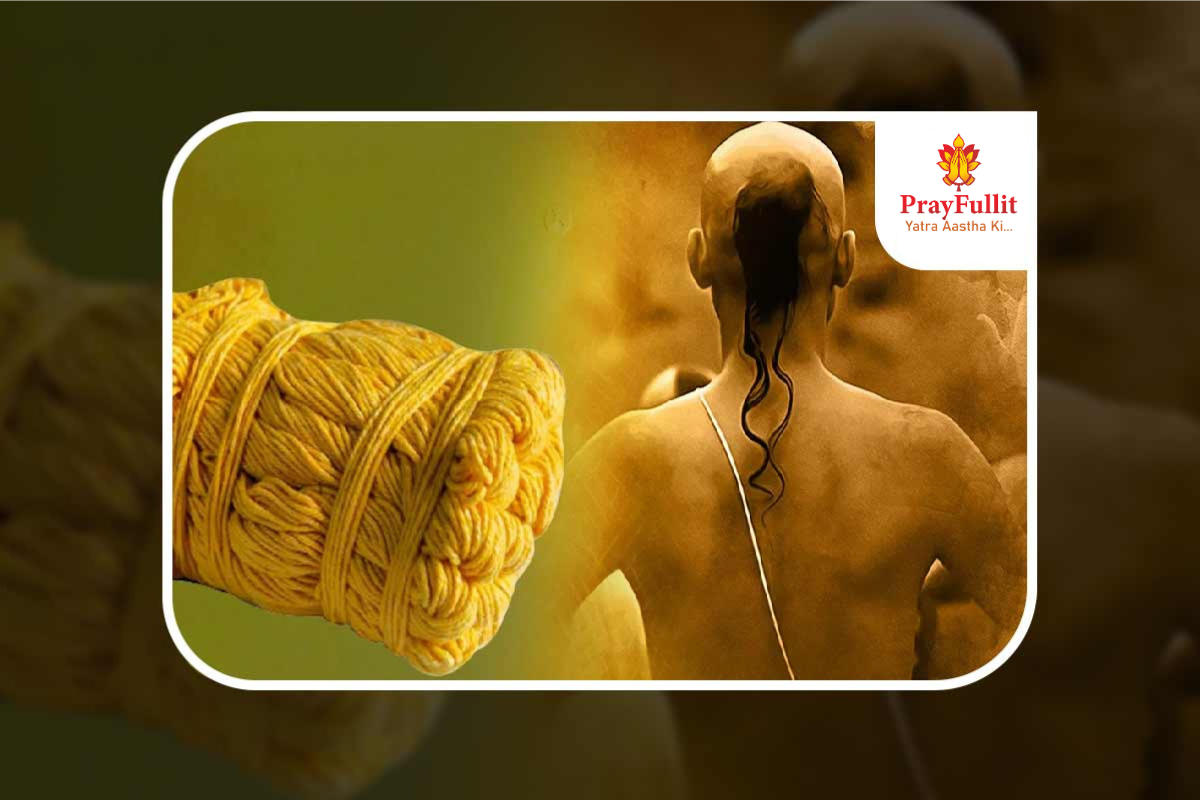Upnayan Sanskar Online - Expert Pandits Online for Janeu Ceremony
Yagyopavit, also known as Upnayan Sanskar or the Janeu Ceremony, is one of the most sacred and transformative rites of passage in Hindu tradition. Derived from the Sanskrit words "Upa" (near) and "Nayana" (to lead), it symbolizes leading a student toward knowledge, discipline, and spiritual awakening. This ceremony marks the "second birth" of an individual—a transition from childhood into a life of Vedic study and religious responsibility.
At Prayfullit, we provide highly learned Vedic Pandits who specialize in the intricate rituals of the Janeu ceremony. We ensure that this major milestone is conducted with strict adherence to Shastra-based protocols, setting a strong spiritual foundation for the journey ahead.
The Significance of Upnayan Sanskar
- Initiation into Education: Traditionally marks the beginning of formal Vedic studies and the pursuit of higher knowledge.
- Assumption of Duties: The individual takes a vow to fulfill their responsibilities toward their family, society, and the Divine.
- The Sacred Thread (Yagyopavit): The three strands of the thread symbolize the three debts (Rinas) an individual owes: to the Gods, the Sages, and one's Ancestors.
- Spiritual Growth: Focuses on the development of character, self-discipline, and the cultivation of a sharp, focused intellect.
Timing and Traditions
- Ideal Age: Traditionally performed for boys between the ages of 8 and 16, depending on family lineage and regional customs.
- Auspicious Muhurat: This ceremony requires a carefully calculated Muhurat. It is often performed on days like Shravan Purnima or other dates selected based on the child's birth chart.
- Vedic Lineage: Whether you follow the Rigveda, Yajurveda, or Samaveda traditions, our Pandits tailor the mantras to match your specific family Shakha.
The Sacred Procedure of Upnayan Sanskar
Our Pandits lead the family through the traditional stages of the ceremony:
- Ganesha & Matrika Pujan: Seeking blessings and protection from all obstacles before the main ritual begins.
- Chaul Karma (Tonsure): In many traditions, the child’s head is shaved as a symbol of leaving behind childhood and beginning a disciplined life.
- Yagyopavit Dharana: The central ritual where the sacred thread is placed over the left shoulder, symbolizing the start of religious duties.
- Gayatri Mantra Initiation: The Pandit or Father whispers the sacred Gayatri Mantra into the child’s ear, initiating them into the world of spiritual light.
- Bhiksha Ritual: A symbolic act where the student seeks alms from guests, teaching humility and the importance of community support for education.
Preparation Checklist for the Family
- Sattvic Environment: The home or temple should be purified and decorated with traditional flowers, mango leaves, and Rangoli.
- Puja Samagri: A detailed list is provided by our Pandits, including the Janeu thread, deer skin (or alternative), sacred grass (Kusha), and ingredients for the Homa (fire ritual).
- Family Participation: This is a major social event; ensure that maternal uncles and elders are present to fulfill their specific ritual roles.
- Traditional Attire: The child is usually dressed in unstitched yellow or saffron clothing for the ceremony.
Why Choose Prayfullit?
- Experienced Vedic Scholars: We connect you with verified Pandits who are experts in the complex procedures of the Janeu Sanskar.
- Customized Lineage Rites: Rituals are tailored specifically to your Gotra, Veda, and ancestral practices.
- End-to-End Support: From Muhurat calculation to providing a comprehensive Samagri list, we manage the spiritual logistics.
- Effortless Booking: Secure your professional Pandit through the Prayfullit app or website in minutes.
Book Pandit Online For Upnayan Sanskar with Prayfullit
Mark this life-changing milestone with authenticity and grace. Prayfullit ensures your child’s Upnayan Sanskar is performed with Vedic precision, empowering them with wisdom and protection.
Download the Prayfullit App
Download the Prayfullit App Empower your spiritual life with Vedic wisdom. Book verified Pandits for site visits, get alerts for auspicious thread ceremony dates, and access our services. Carry your traditions in your pocket, wherever you go.
